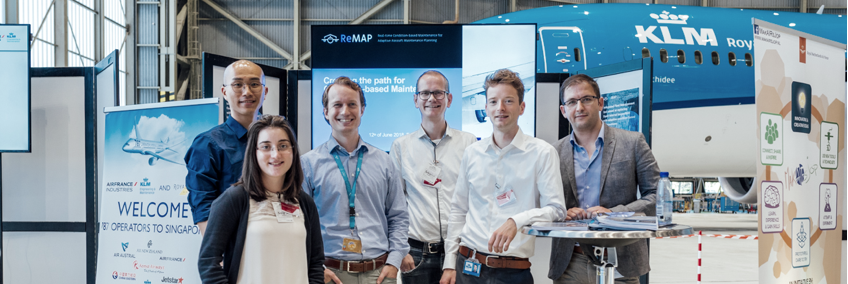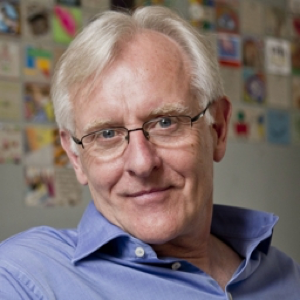Photo from left to right: Juesong Lee – PhD Student TU Delft, Mihaela Mitici – Assistant Professor TU Delft, Wouter Kalfsbeek – Big Data Lead KLM E&M, Wim Verhagen – Assistant Professor TU Delft, Floris Freeman – Research Lead KLM E&M, Bruno Santos – Assistant Professor TU Delft and ReMAP Project coordinator.
Yet, the same website reports that last month and in Europe alone, more than 7500 flights have been cancelled and over 140,000 flights have been delayed by 15 minutes or more. Regardless of what airline has encountered these delays, it is painful to realize that many passengers have been disappointed by delays that are in some cases due to unexpected technical findings.
During MRO Europe in Amsterdam, it became clear to me that a data-driven way of operating an MRO-organization is no longer a vision hold by some pioneers, but rather regarded as inevitable amongst the whole industry. In my opinion, the question is not which company will be able to valorize its own data best, but rather which collaborating group of innovative parties will be able to analyze enough data to make the first steps toward CBM, while maintaining or improving safety performance. ReMAP, -a consortium of 13 European parties- is such a group that can pave the way for condition-based maintenance, and we do so by developing an integrated health management solution that is open-source, modular and accessible to anyone.
I am excited that KLM is part of the ReMAP’s consortium, and during the KLM MRO Fair on October 16th, I realized that this excitement is shared amongst many of my colleagues as well. In front of a Boeing 787, ReMAP took the opportunity to inform KLM Engineering & Maintenance staff about our plans and ambitions.
It is hard to estimate how the numbers quoted earlier in this article will have changed by 4 years of innovative research, but it is empowering to feel the energy at which ReMAP has kicked off its first work streams, truly paving the way towards condition-based maintenance in the aviation industry.






